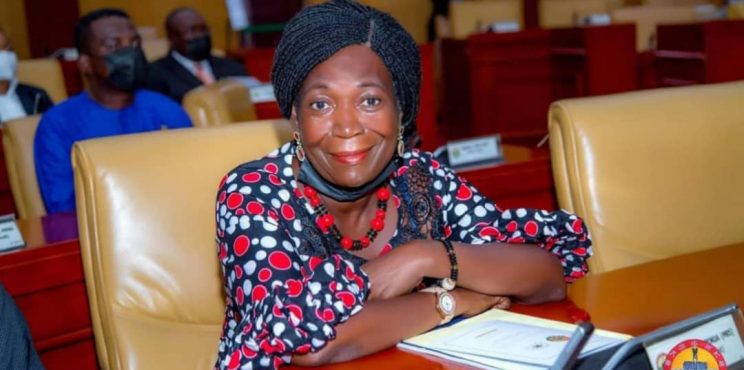Taxing Mobile Money transaction is insensitive-Della Sowah

Member of Parliament for Kpando, Della Sowah has described government’s decision to tax Mobile Money transaction through E-levy as insensitive.
The Finance Minister Ken Ofori-Atta on Wednesday announced in Parliament when presenting the budget that a new levy would be charged in 2022 on all electronic transactions.
“It is becoming clear there exists enormous potential to increase tax revenues by bringing into the tax bracket, transactions that could be best defined as being undertaken in the ‘informal economy,” The Finance Minister said.
The new E-levy will be a 1.75 per cent charge on all electronic transactions covering mobile money payments, bank transfers, merchant payments and inward remittances to be borne by the sender except inward remittances, which will be borne by the recipient.
Speaking to a section of the media in Parliament, Della Sowah said she believes that such tax will further worsen the woes of the ordinary Ghanaian who resort to Mobile Money as means of transaction.
She further noted that such a move will only destabilize Ghana’s financial inclusion drive, and force people especially those in the rural areas to carry huge monies for transactions.
According to her what has changed from what the Vice President Dr.Mahamudu Bawumia, said in August 2020, that he doesn’t believe Mobile Money should be taxed.
Della Sowah indicated, the Vice President admitted during an interview with Kwame Sefa Kayi that most of the users of the service are poor, and taxing it would bring more suffering.
” From August 2020 to November 2021, are all the poor users rich overnight? What has changed? This is insensitive,” she said.
She noted that when people are recovering from the craws of COVID-19, you don’t break their back through cruel taxes.
According to a Bank of Ghana report, Ghana saw an increase of over 120 percent in the value of digital transactions between February 2020 and February 2021 compared to 44 percent for the period February 2019 to February 2020 due to the convenience they offer.















